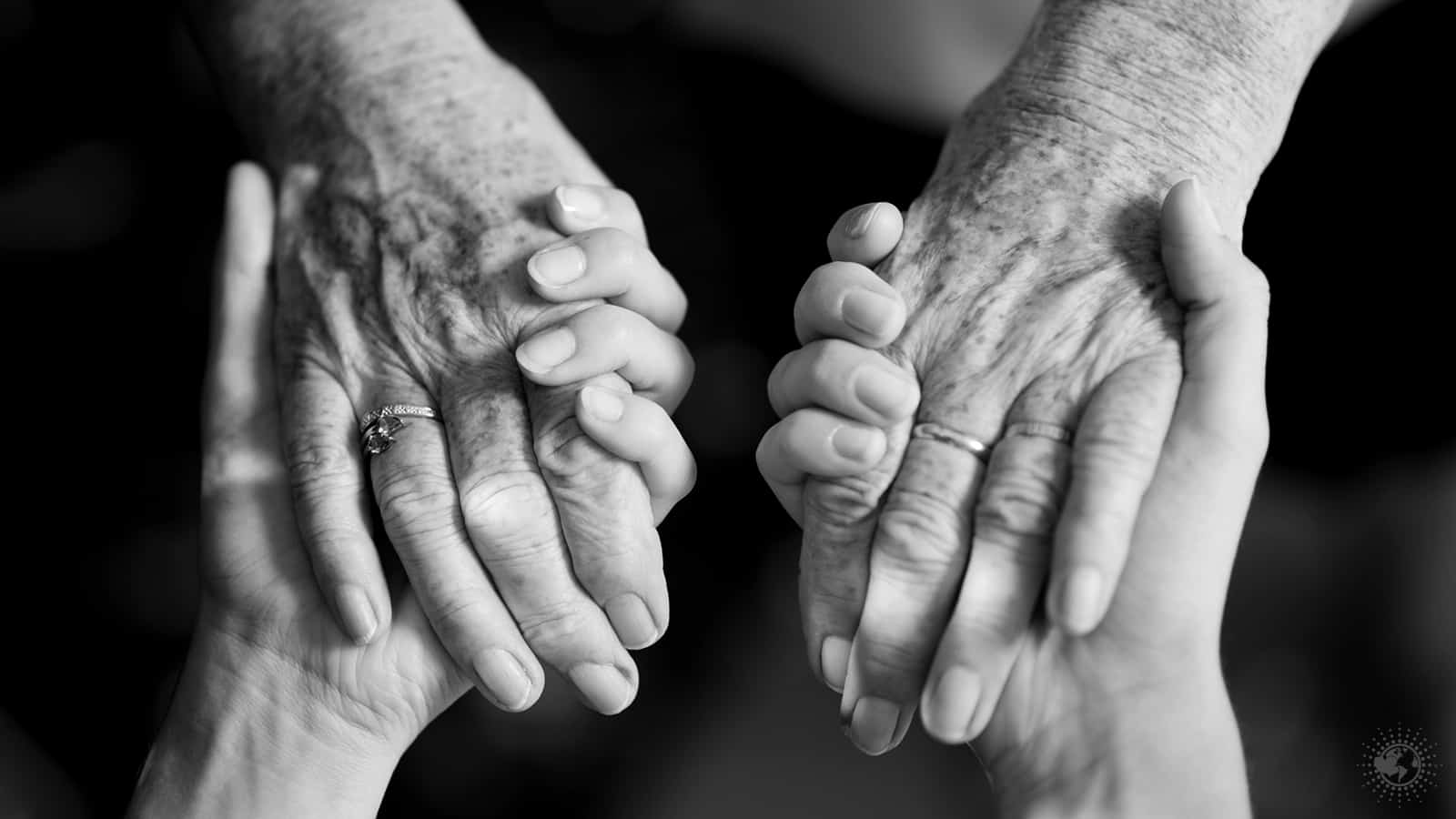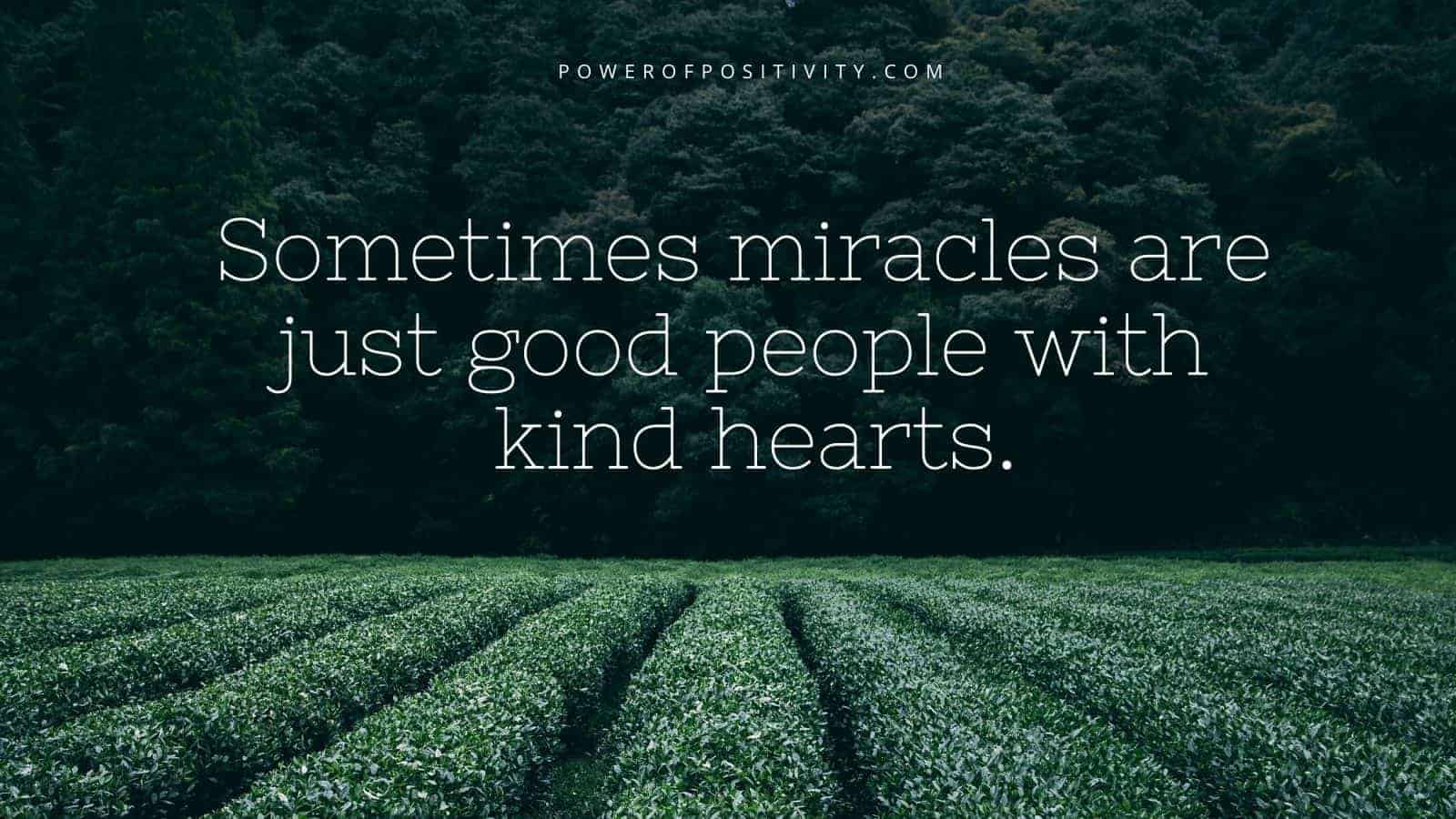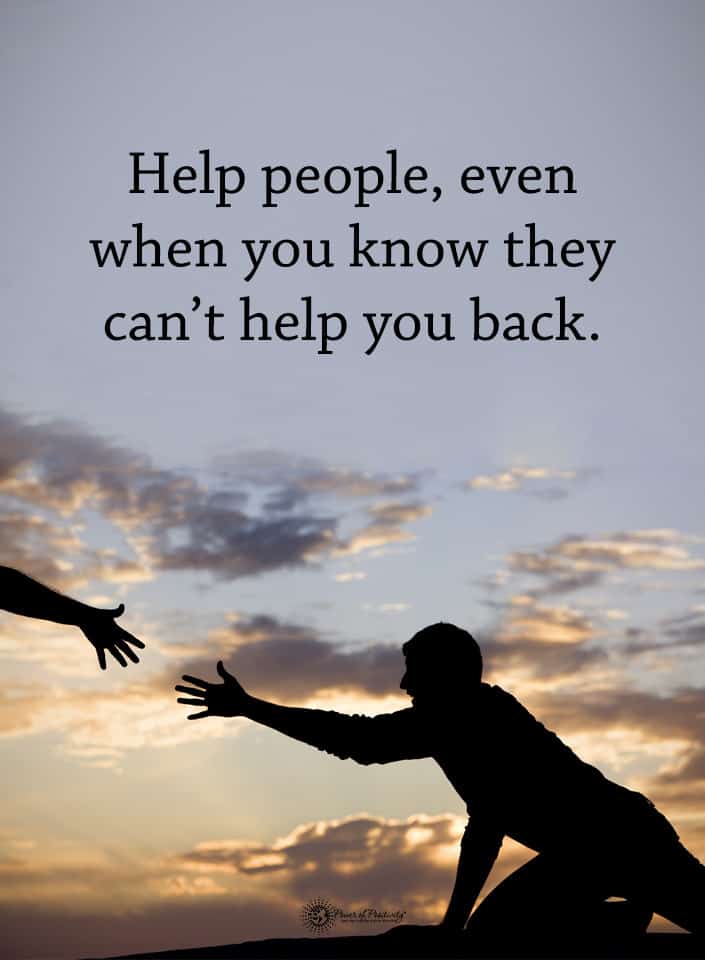Scientists have studied how kindness can alleviate anxiety and depression, but now they’ve found that compassion can slow the aging process as well. Being kind doesn’t cost a thing, and it can turn someone’s day around. Think of how many people in the world feel stressed out, overwhelmed, and defeated daily. Even the teeniest act of kindness, such as opening the door for someone or smiling at them as you walk past, can have a dramatic effect on their mental state.
Plus, showing kindness to others, in turn, makes us feel better because of the impact we’ve made on someone’s life. If we all showed a little bit more love and compassion toward others, imagine what a different world we could have. Kindness becomes contagious when you share it; think of how many people pay it forward in a Starbucks line once they see someone else doing it. This behavior can apply to many different scenarios where being kind creates a ripple effect and encourages others to do their part.
“Constant kindness can accomplish much. As the sun makes ice melt, kindness causes misunderstanding, mistrust, and hostility to evaporate.” – Albert Schweitzer
Examples of kindness in daily life
Kindness means being friendly, generous, and considerate of the people around you. It also means showing compassion to those regardless of whether they return the sentiment. Kindness should come from a selfless place, simply because you care about humanity’s happiness and well-being. If we all adopted the mindset of serving others selflessly and saw others as an extension of ourselves, our world would undoubtedly become more harmonious.
Once you show compassion to others, the people around you will become “infected” with love and generosity. They will naturally want to imitate your giving nature because they see firsthand how it positively impacts others. Observing an act of kindness can boost oxytocin levels and cause spectators to pay it forward.
Even if you don’t feel naturally inclined to perform acts of kindness, everyone can learn to develop the habit. If you make it a point to do something kind for someone daily, you’ll start to see how good it feels when you help others. Then, it becomes second nature and will transform your physical and mental health.
Here are some ideas about how to show people kindness:
- Hold the door open for people
- Mow your elderly neighbor’s lawn
- Pick up trash in your neighborhood or at the beach
- Pay for the person in line behind you (ex. coffee, ice cream, groceries, etc.)
- Give someone a compliment
- Smile at every person you pass by
- Write a letter to your local police, firefighters, or hospitals to thank them for their service
- Bake a dessert for your neighbor
- Put on a free hugs T-shirt and stand at a popular place in town
- Donate to a charity
- Volunteer at your local soup kitchen, a food bank, or the area homeless shelter
- Give a random person a small amount of money, like $5 or $10
- Pay for your family to go out to dinner
- Clean up your parent’s home
- Wash your neighbor’s car
- Plant trees in your community
- Tell someone at the gym you’re proud of their commitment
- Grow a garden and share food with neighbors
- Donate old clothes or anything else you don’t use
- Tip your cashier or barista
Health benefits of being kind
Kindness can significantly benefit our mental, physical and emotional health. When you show compassion, the following things will happen in your mind and body:
1 – Boosts feel-good hormones
Studies have shown that being altruistic, or helping others without expecting anything in return, stimulates the reward centers in our brains. Those feel-good hormones, such as oxytocin, dopamine, and serotonin, build up in our system, much like what happens when we exercise. They call this the “helper’s high,” which you can experience from doing things like volunteering. Showing kindness and giving our time to people less fortunate can lower depression and stress levels.
2 – Lowers blood pressure
Giving donations can lower blood pressure and improve markers of heart disease. One study asked a group of people with high blood pressure to spend $40 on themselves, while they instructed the second group to spend money on others.
They found that those who gave away their money had lower blood pressure at the end of the six-week study. In fact, they saw similar results as people who adopted a diet and exercise program to decrease blood pressure.
3 – Reduces pain
Showing kindness can lower pain levels. A recent study found that people showed less sensitivity to an electric shock when they agreed to donate money to an orphanage. Also, people who believed their donation could make a big difference showed even less sensitivity to the shock. The study found that even thinking about giving to others deactivated parts of the brain that react to painful stimuli.
4 – Boosts happiness
In the UK, researchers found that happiness levels could increase in just three days from acts of kindness. The study separated people into three groups: the first group had to perform an act of kindness daily; the second group got involved in a new activity, and the third group did nothing. The first and second groups showed a significant boost in happiness.
However, make sure you switch up your kindness routine a little bit. Happiness researchers Sonja Lyubomirsky and Kennon Sheldon found people who performed a variety of kind acts throughout the week had greater happiness than those who did the same thing over and over.
As if these benefits don’t give us enough incentive to show more compassion, researchers have found that kindness can keep us younger longer!
Here’s how kindness slows down aging:
A recent randomized controlled trial performed by scientists at the University of North Carolina at Chapel Hill discovered that aging might slow down when people engage in loving-kindness meditation. They put 142 adults in three different groups: a mindfulness meditation class, loving-kindness meditation, or a control group during a 6-week workshop. The meditation groups participated in six hour-long meditation classes once per week. They had meditation sessions at home for 20 minutes a day while listening to an audio recording as well.
Scientists then measured the length of their telomeres at the end of the study. Telomeres are protective caps at the end of chromosomes that help prevent damage, and as we age, they get shorter and wear down. Studies show that shorter telomeres can cause many health problems, including DNA damage and cancer. Telomere length and longevity go hand-in-hand.
Lifestyle factors such as eating healthy and engaging in regular exercise can delay the shortening of telomeres. However, negative lifestyle factors such as chronic stress and a lack of exercise can increase the rate at which telomeres wear down. Scientists found that the loving-kindness meditation group lost much less telomere length than the other groups. The mindfulness meditation group lost less than the control group, but still more than the loving-kindness group.
Researchers said that the loving-kindness meditation might work to “buffer telomere attrition,” which could slow down the effects of aging.
Other tips on slowing the aging process:
- Make sure to exercise regularly for at least 30 minutes, three times per week.
- Eat a healthy, nutritious diet full of healthy fats like avocado and salmon, protein such as lean meats, nuts and seeds, and lots of fruits and veggies. Avoid or limit processed foods and fast food.
- Avoid alcohol and smoking, as these dramatically increase the effects of aging.
- Get plenty of sleep.
- Keep stress levels low and simplify your life as much as possible.
- Laugh! Don’t take life so seriously because no one gets out alive anyway.
- Keep your mind active with puzzles that will stimulate your brain muscles.
- Drink plenty of water, especially if you exercise frequently.
Final Thoughts on how kindness slows down aging
Kindness offers so many health benefits, such as lowering stress, improving mental health, keeping your heart healthy, and slowing down aging. Scientists have just begun to study the effects of kindness on anti-aging, but the results have been promising. Perhaps doctors will start to prescribe acts of kindness when people go for check-ups!
You don’t have to do anything that’s too over the top or lengthy to show kindness; merely holding open the door for someone, smiling at a stranger, or paying for a person’s coffee can turn their day around. Not only will you improve a person’s life, but you will feel the positive effects of showing kindness as well. Our world just couldn’t keep going without compassion and understanding, so make sure you reach out to the people around you.
You never know what people deal with on a daily basis, and kindness never goes out of style. Don’t hesitate to give all the love and generosity you can, because the world could certainly use more of it.
“Love and kindness are never wasted. They always make a difference.” —Helen James
















 Community
Community

